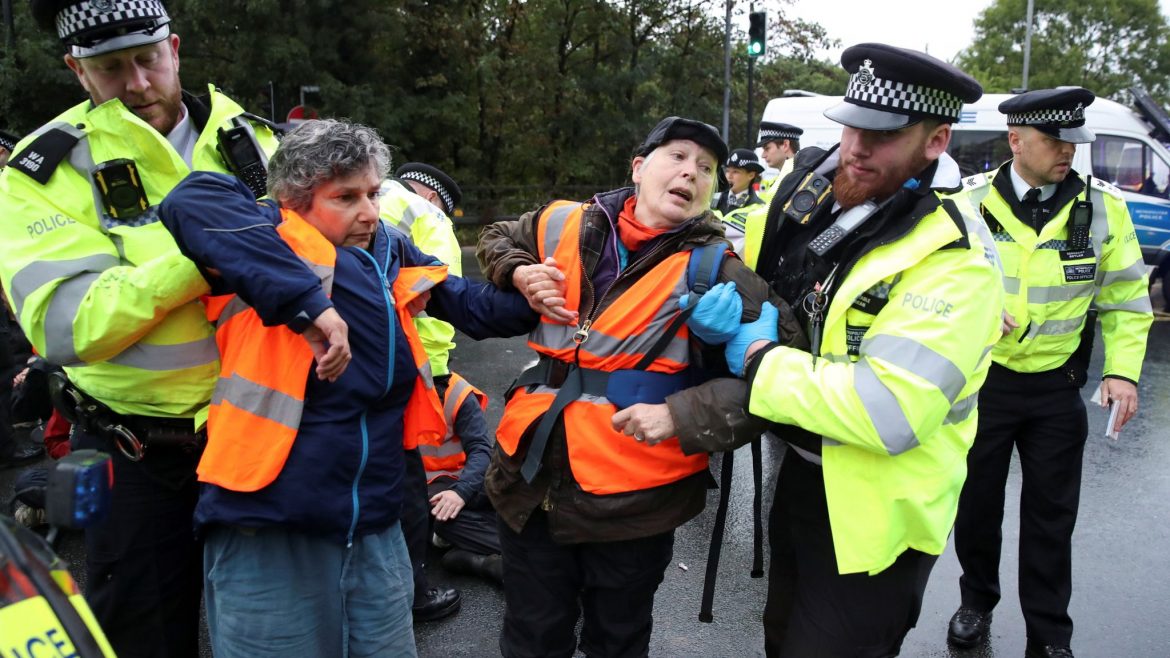Leading lawyers have said that the restrictions placed on non-violent climate protesters who have been tried in criminal courts were part of a “deeply concerning” “pincer movement” narrowing their rights to free expression.
Three Insulate Britain activists are currently serving jail terms for contempt of court for breaching rulings made by a judge that they were not to mention the climate crisis, fuel poverty or the history of the peaceful civil rights movement to juries.
Recall that the three activists, including David Nixon, Amy Pritchard and Giovanna Lewis – were jailed after addressing the juries at separate trials to explain their motivation for taking direct action.
Read also: Report: Chinese cities record high temperatures for early March
They were on trial for public nuisance for taking part in a roadblock in the City of London in October 2021 as part of a campaign by Insulate Britain which says it wants to pressurise the government to insulate UK homes to reduce carbon emissions. Nixon was convicted of public nuisance. The jury failed to reach verdicts in the trial of Lewis and Pritchard and a decision is due on 31 March on whether a retrial will take place.
Addressing the juries at the Inner London crown court, the judge, Silas Reid said that the trials were not about climate change, or whether the actions of Insulate Britain and similar organisations were to be applauded or condemned, but whether or not the protesters caused a public nuisance. The defendants’ motivations for acting the way they did had no relevance, he said.
Rulings restricting freedom of expression defences available to peaceful protesters have been made at trials in other courts. Katy Watts, a lawyer at advocacy organisation Liberty, said that it was “deeply concerning” to see protesters imprisoned just for mentioning the reason for their actions.
“We all have the right to stand up for causes we believe in. But we have seen a kind of pincer movement going on over the scope of convention rights in protest cases, which [is] increasingly narrowing our rights,” she said.
Story was adapted from the Guardian.
